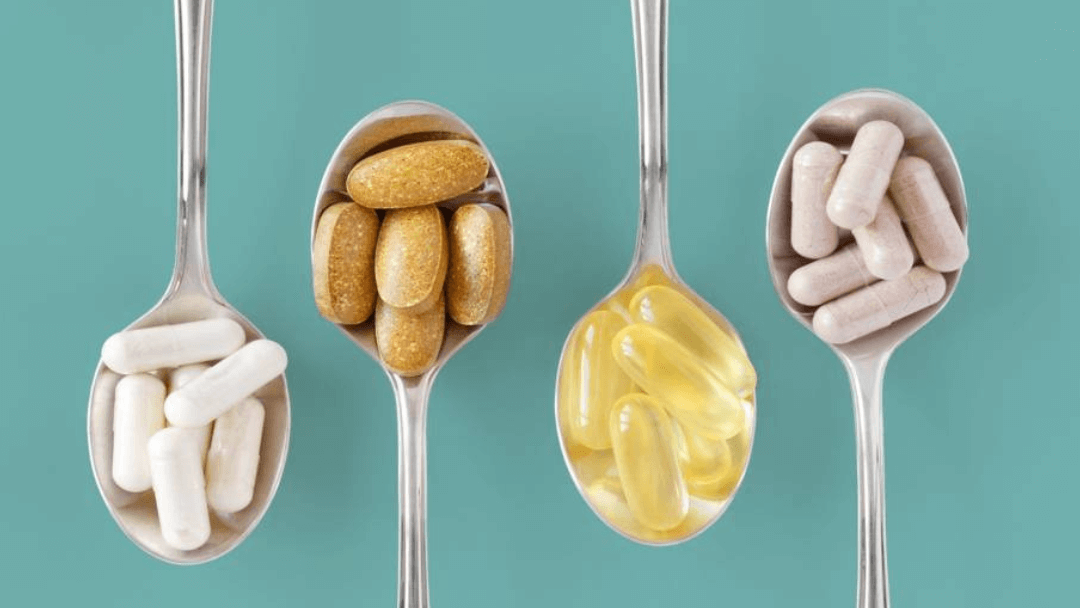Maintaining optimal glucose levels is crucial for overall health, especially for individuals managing diabetes or aiming for improved metabolic wellness. While medication and lifestyle changes play significant roles, the importance of proper nutrition, particularly the intake of essential micronutrients, cannot be overstated. In this blog post, we'll explore eight key micronutrients essential for glucose balance and how they can be incorporated into your diet.
1. Magnesium:
Involved in over 600 bodily processes, magnesium aids insulin activity and maintains nerve and muscle function. Studies show magnesium intake lowers risk for type 2 diabetes by improving insulin sensitivity. Deficiency raises the risk of hypertension as well.
Tips: Adults require between 310-420mg daily of magnesium, which can be obtained from leafy greens, nuts, seeds, legumes, and fish like salmon.
2. Zinc:
Involved in cellular division and metabolism, zinc helps maintain optimal thyroid hormone levels supporting metabolism. Studies link zinc deficiency to poor glucose regulation and insulin resistance.
Tips: Aim to consume 7-11mg of zinc daily, sourcing it from meat, seafood, legumes, nuts, seeds, poultry, and dairy products.
3. Chromium:
Working alongside insulin, chromium enhances the hormone's ability to shuttle glucose from bloodstream to cells. Research links getting adequate chromium to improved glucose control.
Tips: Good sources providing chromium include broccoli, nuts and brewer's yeast.
4. Vitamin D:
With properties similar to hormones, vitamin D aids insulin secretion and sensitivity. Low levels associate with an increased risk of metabolic syndrome and diabetes. Produced with sun exposure or consumed through fatty fish and supplements, adults require 600-1000IU daily.
5. B Vitamins:
B vitamins, including B1 (thiamine), B2 (riboflavin), B3 (niacin), B5 (pantothenic acid), B6 (pyridoxine), B7 (biotin), B9 (folate), and B12 (cobalamin), are essential for various metabolic processes, including energy production and macronutrient metabolism. Deficiencies in these vitamins can disrupt glucose metabolism and contribute to fluctuations in glucose levels.
Tips: Find B vitamins in whole grains, dairy, leafy greens, poultry, fish, eggs, nuts, seeds, and legumes.
6. Omega-3 Fatty Acids:
These essential fatty acids play a crucial role in reducing inflammation and improving insulin sensitivity, which can help stabilize glucose levels. Incorporating omega-3-rich foods like fatty fish, flaxseeds and walnuts into your diet at 1-1.5 grams per day, as suggested by the National Institutes of Health as part of a healthy diet, can support overall metabolic health and promote glucose balance.
7. Iron:
Iron is essential for the proper function of hemoglobin, which carries oxygen to cells throughout the body. Iron deficiency can lead to anemia, causing fatigue and reduced physical activity, ultimately impacting glucose regulation. Ensuring adequate iron intake through diet or supplementation can help support metabolic wellness and maintain stable glucose levels.The USDA recommends 18 mg of iron daily for women aged 19-50 and 8 mg for women 51+ and men 19+, respectively.
Tips: Red meat, poultry, fish, shellfish, legumes, tofu, spinach, and fortified cereals are iron-rich foods.
8. Dietary Fiber:
Dietary fiber is known for its ability to slow down the absorption of sugar in the bloodstream, helping to prevent spikes in glucose levels after meals. It also promotes satiety, which can aid in weight management and overall metabolic health. The ADA recommends a goal of 25-35 gm of dietary fiber daily for a healthy diet.
Tips: Fiber-rich foods include fruits, vegetables, whole grains, and legumes.
Incorporating these crucial micronutrients into your diet and lifestyle supports optimal metabolic wellness and healthy glucose levels. Whether through dietary changes, supplementation, or lifestyle modifications such as regular physical activity and stress management, taking proactive steps prioritizes metabolic health, yielding long-lasting benefits for overall well-being.
Sistema de monitoramento contínuo de glicose SIBIONICS GS1 CGM

668.00 dh
Monitoramento Contínuo de Glicose por 14 Dias Leituras de sensores altamente precisas Relatórios AGP exportáveis Dados compartilháveis de glicose em tempo real Alarme de glicose personalizável Aplicativo fácil de usar Calibração Grátis Sem digitalização IP28 à prova d'água … read more
Additionally, monitoring key micronutrient levels and tracking the body's responses to dietary changes further optimizes metabolic wellness and glucose control over time. The SIBIONICS GS1 Continuous Glucose Monitoring (CGM) System offer convenient, real-time analysis of glucose patterns. SIBIONICS CGM’s waterproof sensor provides continuous readings every 5 minutes via Bluetooth to the SIBIONICS APP. Gaining deeper metabolic insights empowers proactive personalization of nutrition interventions and lifestyle protocols, unlocking the highest potential for stable glucose levels.
Conclusion:
Prioritizing these crucial micronutrients through diet and lifestyle fosters metabolic wellness and stable glucose levels. With proactive monitoring and personalized interventions, achieving optimal health becomes an attainable reality. Embrace the journey towards balanced metabolic function for enduring well-being.
FAQs:
Q: What nutrients reverse insulin resistance?
A: Nutrients that may help reverse insulin resistance include magnesium, chromium, vitamin D, omega-3 fatty acids, and certain B vitamins like B3 (niacin) and Biotin (B7). These nutrients support insulin sensitivity and glucose metabolism, contributing to improved glucose regulation.
Q: What vitamins should diabetics avoid?
A: Diabetics should be cautious with supplements containing high doses of certain vitamins, particularly fat-soluble vitamins like vitamin A and vitamin E. High doses of these vitamins may interfere with glucose control or interact with medications commonly used to manage diabetes.
Q: Which magnesium is best for insulin resistance?
A: Both magnesium glycinate and magnesium citrate are well-absorbed forms that may benefit insulin sensitivity. As magnesium glycinate is gentler on the stomach, it's often recommended. Clinical studies have used 225-450mg supplemental magnesium glycinate or citrate daily for reducing insulin resistance.









